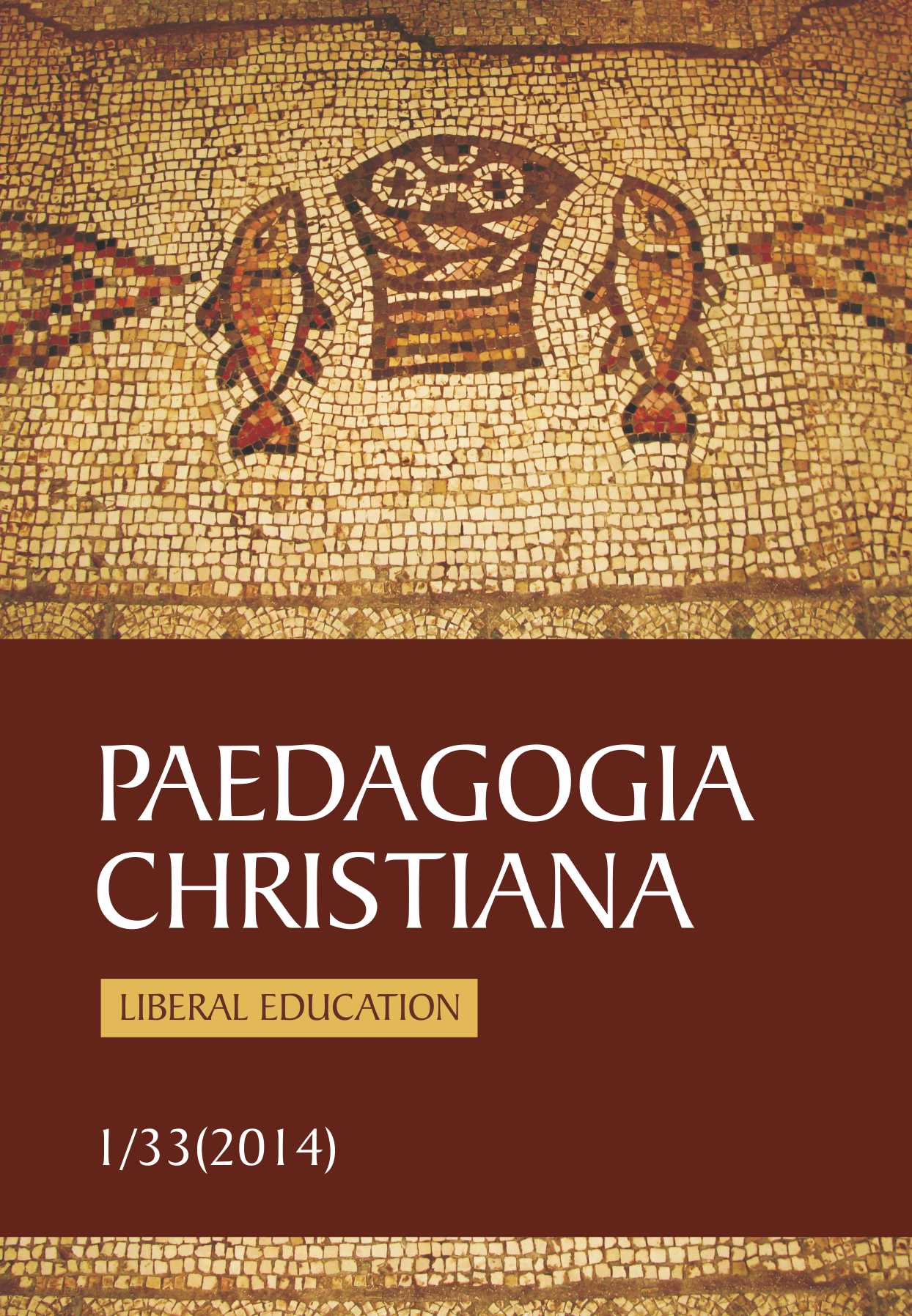Variations on a Theme of Mediation in Relation to the Concept of Liberal Education
DOI:
https://doi.org/10.12775/PCh.2014.013Keywords
liberal education, mediation, education, individual’s development, conflictAbstract
A purpose of the article is an attempt of answering the question, whether the institution of mediation can become a part of a system of liberal education assumptions by seeking shared and related meanings for them. The author of the article is deducing them from the subject of deliberations, which is focused on enlightenment characteristics of a free man responsible for creating his own reality. Due to rather insignificant scientific achievements of Polish pedagogical reflections concerning both mediation and liberal education, the following deliberations are considered unoriginal; simultaneously, becoming a possibility of entering into further discussions in the process.
It is not the author’s intention to describe liberal education and mediation from the perspective of effects of the formal education, system or course of study, but to focus on their properties, aimed at an intellectual, social and spiritual development of an individual. Therefore, liberal education is defined as the system of assumptions aimed at individual’s autonomous development focused on humanistic values. On the other hand, the literature on the subject emphasizes the co-occurrence of many semantic ranges of mediations, resulting, among others, from their authors’ adoption of different aims of the procedure of mediation, conditioning the shape of individual mediatory paradigms. Therefore, an operational research model of the mediatory paradigm, which considers important aims adopted in the article of mediation, conditioning the success and effectiveness of the mediatory discourse, constitutes an interpretation of the discussion.
References
Zienkiewicz A.. 2007. „Studium mediacji. Od teorii ku praktyce”. Warszawa.
Wrońska K.. 2013. „Liberal Education in Selected Polish Pedagogical Concepts – in Comparison to English-language Concepts – with Particular Reference to the Enlightenment (Period 2)”. Kultura i Wychowanie 6: 6.
Winch C., Gingell J. (red.). 2008. „Philosophy of Education. The Key Concepts”. London and New York.
Hirst P. H.. 1975. „Liberal Education and the Nature of Knowledge”. W Knowledge and the curriculum. A collection of philosophical papers, 88. London–Boston.
Peters R. S.. 1970. „Ethics and Education”. London.
Zienkiewicz A.. 2009. „Mediacja sądowa i pozasądowa. Zarys wykładu”. Warszawa.
Jonson D. W., Johnson R. T., Tjosvold D.. 2005. „Konstruktywny spór: Wartość intelektualnej opozycji”. W Rozwiązywanie konfliktów: teoria i praktyka, 66. Kraków.
Folger J. P., Poole M. S., Sutman R. K.. 2000. „Konflikt i interakcja”. W Mosty zamiast murów. O komunikowaniu się między ludźmi, 490. Warszawa.
Witkowski L.. 1995. „Psychologia rozwiązywania konfliktów. Praktyka radzenia sobie ze sporami”. Warszawa.
Sandy S. V., Cochran K. M.. 2005. „Rozwój umiejętności rozwiązywania konfliktów u dzieci: W okresie od wieku przedszkolnego po dorastanie”. W Rozwiązywanie konfliktów: teoria i praktyka, 313. Kraków.
Folkierska A.. 2005. „Sergiusz Hessen – pedagog odpowiedzialny”. Warszawa.
Downloads
Published
How to Cite
Issue
Section
Stats
Number of views and downloads: 442
Number of citations: 0



